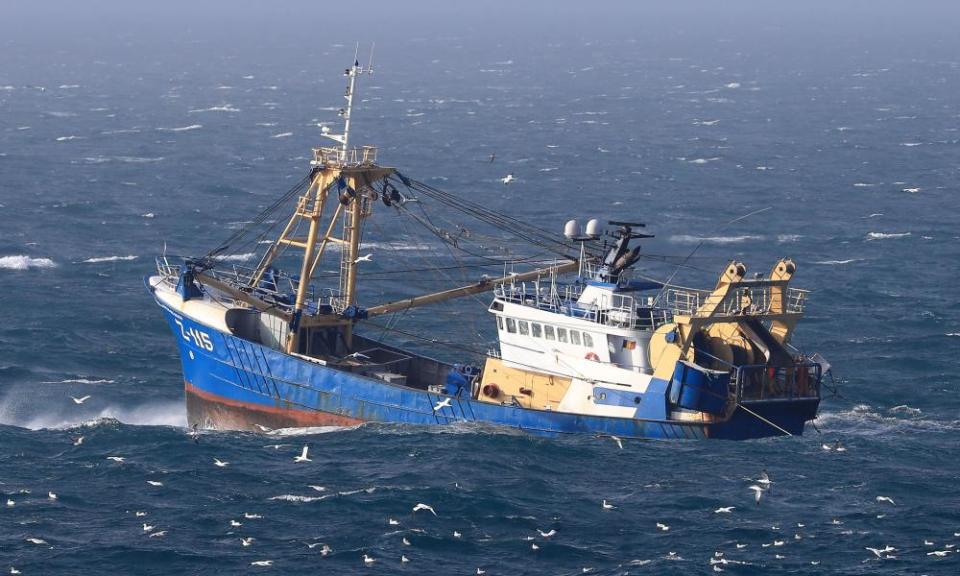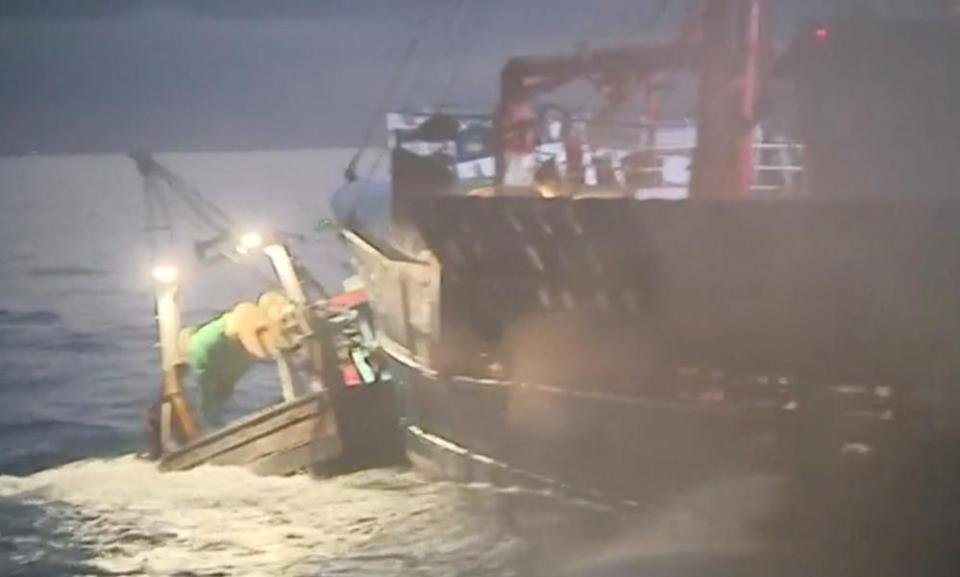UK fisheries accuse EU of using 'nuclear option' in Brexit talks

The UK’s fishing industry has accused the EU of using a “nuclear option” to secure a Brexit deal, warning that it is prepared for blockades by the French if trade talks collapse.
Fishing leaders have also revealed they do not support an extension to the transition period despite being hit badly by the coronavirus pandemic, with the closure of restaurants and hotels affecting sales.
Barrie Deas, the chief executive of the National Federation of Fishermen’s Organisations said the industry is relishing liberation from the common fisheries policy, claiming decades of injustices, such as French boats being allowed to catch 84% of the quota of cod in the Channel, for instance.
Deas claims the EU’s “hardline position” involves zero compromise and “requires capitulation” by the UK over its demands for a fairer share of the catch from British waters.
Fishing makes up 0.1% of the UK economy but it has found itself at the centre of the trade row because it is so emblematic of Brexit, with communities demanding the government “takes back control” of British waters.
Talks are at a crunch stage, with the EU saying there can be no trade deal without an agreement on fisheries by the end of June to allow fresh quota levels to be set for January next year when the transition period is due to end.
“This is something of a nuclear option … so far, there’s no sign of compromise from the member states, particularly the member states that benefit from the current arrangements, and the EU mandate doesn’t really provide any scope for compromise, what it requires is capitulation by the UK. My assessment is that that’s not very likely – fishing remains an emblematic issue for the government,” said Deas.
His comments came as the fourth round of Brexit talks about trade and the future relationship between the UK and the EU began on Tuesday.
In the past week, both sides have lowered their expectations, saying they think it is unlikely the impasse on fisheries and other issues will be broken.
At a press briefing, Deas said the industry did not support an extension to the transition period and that skirmishes between English and French fishing leaders would be almost inevitable.
“France benefits more than anybody else from relative stability from the current quota shares. If there’s any change to that, those quota shares or any other aspect that affects French fishermen, as day follows night there will be blockades, they have done it for much less in the past,” said Deas.
He said other countries take “a much more pragmatic” view and recognise that “quota shares will have to change”.
“There will be a reaction in France by the fisherman, that’s just the nature of the beast,” he said but added that that was not a reason “not to do what we’re doing” or to extend the transition period.

Two years ago, British and French boats clashed in the Channel in what became known as the “scallop wars”.
Elspeth Macdonald, the chief executive of the Scottish Fishermen’s Federation, warned that the French had much to lose if talks break down, with 5,000 jobs in Boulogne dependent on the business.
She also pointed out that the fishing industry by value is worth “about £1bn in each direction”. However, this is split by 11 nations, with Ireland, France, Belgium, Spain, Portugal, Denmark and the Netherlands being particularly hit by any reduced access to British waters.
Last week, the EU chief negotiator, Michel Barnier, said he had spoken to 11 fishing ministers and there would be no change to his mandate.

